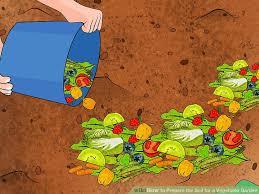
(Close to return to eBook page)
It is certainly in the best interests of the human population to avoid chemicals in our food, but it’s also better for our planet as well. Chemicals can affect the soil making it less fertile. They destroy important parts of the natural eco-system. All plants and animals serve some sort of purpose – even if that purpose isn’t especially obvious. By taking these components out of the natural life cycle, we are endangering our environment in ways we can’t necessarily see outright, but that danger is there.
So it becomes obvious that growing your food naturally is the best way to go. Let’s take a moment and look at what exactly organic gardening is.
So it becomes obvious that growing your food naturally is the best way to go. Let’s take a moment and look at what exactly organic gardening is.

Many gardeners wonder what exactly organic gardening means. The simple answer is that organic gardeners don't use synthetic fertilizers or pesticides on their plants. But gardening organically is much more than what you don't do.
When you garden organically, you think of your plants as part of a whole system within nature that starts in the soil and includes the water supply, people, wildlife and even insects. An organic gardener strives to work in harmony with natural systems and to minimize and continually replenish any resources the garden consumes.
Organic gardening operates on the concept of recycling. You use animal waste, kitchen scraps, and vegetable waste to mulch and compost. You will use common household items like vinegar and soap (not detergents) to prevent pests and weeds.
When you garden organically, you think of your plants as part of a whole system within nature that starts in the soil and includes the water supply, people, wildlife and even insects. An organic gardener strives to work in harmony with natural systems and to minimize and continually replenish any resources the garden consumes.
Organic gardening operates on the concept of recycling. You use animal waste, kitchen scraps, and vegetable waste to mulch and compost. You will use common household items like vinegar and soap (not detergents) to prevent pests and weeds.